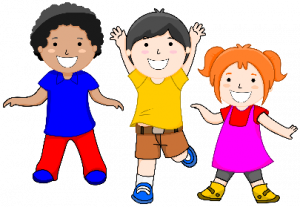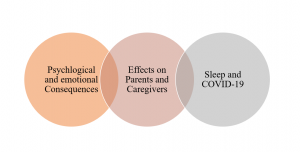
Social and Environmental Effects Of The Covid-19 Pandemic On Children
Many countries across the world, imposed restrictions on the movement of people in public places after COVID-19. Consequently, people of all age groups faced numerous problems related to general health and Psycho-emotional consequences of COVID-19. Researchers Viola and Nunes describe these effects in their originally published article
Reasons for initiating this study…
The prolonged social distancing measures introduced insecurity and psychological discomfort. This included an overall increase in anxiety, depression, and growing fear in the people. Particularly, several changes in children’s routines occurred during the pandemic. They have been instructed to respect rules and habits that are not always understandable to them. For example, disinfecting their hands, not touching their eyes or nose, and covering their mouth. In addition, children are unable to understand the social distancing measures. These changes in routine can cause significant psychological and emotional distress.
Read some interesting topics at Emotional Regulation in Children
What was the purpose of the study?
This study aimed to review the literature. It summarized the existing evidence on the effects of the pandemic on children, adolescents, and parents. In essence, the emphasis was on the psychological, emotional, and sleep quality consequences. Notably, the research was compiled from across the world including countries like Canada, China, USA, UK, Netherlands, and Italy.
What was studied in this research?
What are the Psycho-emotional consequences arising from COVID 19?
 Psycho-emotional consequences of COVID-19 In children
Psycho-emotional consequences of COVID-19 In children
- Fear
- Anxiety
- increased irritability
- inattention
- Apathy
- Feelings of insecurity, fearfulness, isolation
- poor appetite
- restlessness
- Lastly, a lack of self-care
Some of the reasons for effects in younger children as reported by various studies were:
- fear and anxiety about family members being infected,
- separation anxiety during periods of isolation during infection/quarantine,
- reduced social interaction and
- increased screen time.
Psycho-emotional consequences of COVID-19 In adolescents
- Depressive Symptoms
- Anxiety
- Increased suicidal thoughts
- Changes in eating routines
- Increased screen time
- Increased feeling of loneliness
For school-going children and adolescents, the absence of a structured school environment, boredom, and lack of creative interests led to changes in psycho-emotional behavior. Loneliness in times of lockdown periods is a leading cause of anxiety, depressive symptoms, and suicide. Also, movement constraints can also have a negative impact on a child’s physical, cognitive, and overall development.
Read a detailed bllog on Emotional Needs of Children
Psycho-emotional consequences of COVID-19 In Children with Special Needs
Autism Spectrum Disorder (ASD)
-
- More distress due to changed routine
- Greater disposition to development of post-traumatic stress in the post-pandemic period.
- Higher social isolation and distress in situations of uncertainty compared to peers
- Importantly, Failure to continue rehabilitation services
Cerebral Palsy
-
- Impairment in epileptic seizure control
- Worsening of spasticity
- the decline of motor control
Hearing Impairment
-
- Difficulties in coping with virtual education
- Zoom fatigue – auditory fatigue
- Difficulty understanding low audio quality
- Problems perceiving disturbed audio-visual content
What are the Psycho-emotional consequences on Parents and Caregivers arising from COVID-19?
- Post-traumatic anxiety
- depressive symptoms
- change in eating routines
- increased screen time
- stress-related to family & finances
Additionally, a child’s illness greatly affects the mental health of the parents. It indeed is a difficult situation to cope with. People who demonstrated such ill effects were parents whose children tested positive for COVID 19. Similarly, it was those who suffered economic loss due to the pandemic. Lastly, it was those who were unemployed. Though most of these negative effects noted in parents and caregivers are reversible, the cognitive effects seem to persist even after clinical recovery.
What are some findings on Sleep and COVID-19?
Explicitly, habit/routine changes, fear, depression, and anxiety are potential risk factors for sleep quality alterations. In clinical practice, complaints of sleep problems significantly increased during the pandemic. Some of the sleep-related problems which came to light were:
- Firstly, Insisting on sleeping with parents due to fear & anxiety
- Secondly, Sleeping longer
- Thirdly, Reduced quality of sleep
- Lastly, Mood swings & irritability
Furthermore, restrictions on movement, absence of a structured daily routine, and increased screen time were the most common reasons for these changes to have occurred.
There is a wide range of consequences for children and adolescents resulting from the COVID-19. Overall, an increase in depressive mood symptoms resulting from social interaction deprivation and the closing of schools was noteworthy. These consequences include delays in language development, cognitive development, and motor development. There are also important consequences for the mental well-being of parents and caregivers.
Measures to help this situation
- Firstly, develop collaborative networks. Link caregivers, healthcare professionals, teachers, and policymakers.
- Especially, the role of parents and family members is fundamental. In times of great stress and uncertainty, a safe and organized family environment regarding schedules is a protective factor.
- “Interventions for children and adolescents with stuttering” - April 7, 2023
- What is Speech Therapy and its effect? - December 21, 2022
- Dysphagic disorder in a cohort of COVID-19 patients - December 13, 2022



Leave a Comment
(0 Comments)